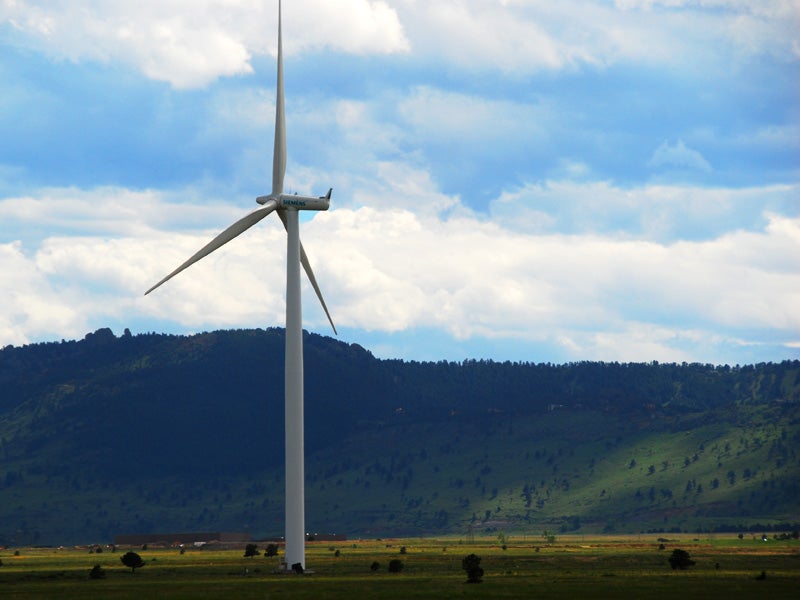Court Upholds Colorado’s Clean Energy Future
A federal appeals court affirms Colorado's renewable energy standard, determining that states have the authority to tackle climate change by transitioning away from fossil fuels.

This page was published 10 years ago. Find the latest on Earthjustice’s work.
Earlier this month, the U.S. Court of Appeals for the Tenth Circuit (which covers Colorado and five other states) upheld Colorado’s authority to require that electric utilities in the state increase the use of renewable energy. The decision, the first from an appellate court that squarely addresses the constitutionality of this type of state-based renewable energy standard (RES), deals a significant blow to industry-led efforts to roll back these standards.
A decade ago, Colorado became the first state in the country to adopt a renewable energy standard by popular vote. Colorado’s law requires utilities to acquire a substantial portion of their electricity from clean energy. Passed by ballot initiative in 2004, the standard is one of the most ambitious in the nation and has been a huge success in promoting clean energy. For example, wind energy generation in Colorado grew by 900 percent from 2006-2013, and installed solar capacity grew 25-fold from 2007-2013. Rooftop solar panels and wind farms are expected to become an even more common sight in the future, as the Colorado standard requires Xcel Energy and other investor-owned utilities to generate 30 percent of their retail electric sales from renewable sources by 2020.
But while Colorado is a clean energy leader, it is not alone in promoting the growth of renewable energy sources. The state is one of nearly 30 that have adopted similar laws in the absence of significant federal legislation promoting a transition away from fossil fuels. Polling has shown strong public support for renewable energy standards, with solid majorities in both parties backing these laws.
This progress, however, is threatened by the fossil fuel industry and its supporters, which have pursued a national effort in recent years to roll back state renewable energy laws. Since 2013, dozens of industry-backed bills have been introduced (usually unsuccessfully) in state legislatures to repeal or weaken clean energy requirements in Colorado and many other states. Utilities and the coal industry also have gone to court to strike down clean energy laws. To date, at least 11 state renewable energy laws—including Colorado’s—have come under attack before federal courts and state agencies. The Colorado lawsuit and other cases typically charge that because electricity involves a national market and is regulated by the federal government, renewable energy standards supposedly exceed a state’s authority under the U.S. constitution.
The court ruling this month upheld Colorado’s renewable standard against a constitutional challenge by a conservative organization known as the Energy and Environment Legal Institute or EELI (formerly the American Tradition Institute). EELI is backed by the coal industry and fossil fuel-powered utilities, and it filed suit in Colorado in 2011 with the stated goal of “putting wind energy on trial.” Earthjustice intervened in the case and we successfully defended the standard in partnership with the state of Colorado and renewable energy trade groups. Had EELI succeeded, the case would have removed the keystone of Colorado’s clean energy economy, eliminating a law that has led many thousands of Coloradans to install solar panels on their homes and businesses. The Tenth Circuit’s decision last week upholding the Colorado law ensures that Coloradans will continue benefitting from the growth of wind and solar power in their state.
More broadly, the court’s decision sets a legal precedent for other state clean energy laws because it is the first appellate decision to squarely address the constitutionality of this type of standard. As a result, it will also bolster efforts to defend similar lawselsewhere, such as in pending cases that challenge clean energy laws in Oregon and Minnesota, among other states. While the fossil fuel industry’s attacks on clean energy in court and state legislatures are far from over, the Tenth Circuit’s decision establishes that states have the authority to tackle climate change by transitioning away from fossil fuels.
Established in 1993, Earthjustice's Northern Rockies Office, located in Bozeman, Mont., protects the region's irreplaceable natural resources by safeguarding sensitive wildlife species and their habitats and challenging harmful coal and industrial gas developments.